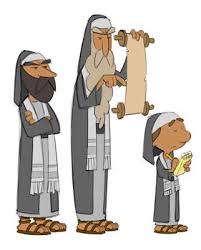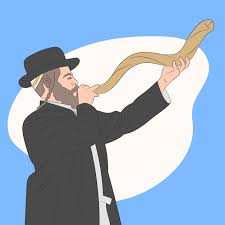I Thessalonians 3:1 – Therefore when we could bear it no longer, we were willing to be left behind at Athens alone…
Welcome back, readers! The first part of chapter three continues to address some of the same concerns found in chapter two. 
Specifically, it seems that the Thessalonians had a distorted view of Paul: He preached the gospel, but when danger appeared, he immediately left them. Later, after the situation calmed down, he still did not return. From their point of view, it seemed that Paul had abandoned them, leaving them to bear their afflictions alone. This led to the belief that Paul had no real concern for their welfare. (These false assumptions were probably suggested and encouraged by the unbelieving Jews, who actively opposed Paul at all times.)
Paul refuted these misconceptions in chapter two, where he compared himself to a distraught parent who is forced to leave his children alone in the world. He then moves on to talk about why he did not immediately return to them – he was hindered by Satan.
As if that were not enough, some of the Greek philosophers were also sowing seeds of doubt into the hearts and minds of the church. These concerns are what Paul addresses in the first five verses of chapter three. Let’s take a closer look.
During the early days of the church, the gospel message was commonly accompanied by signs, wonders and miracles, which confirmed the validity of the message:
Acts 14:3 – So they [Paul and Barnabas] remained for a long time, speaking boldly for the Lord, who bore witness to the word of his grace, granting signs and wonders to be done by their hands.
Acts 5:12 – Now many signs and wonders were regularly done among the people by the hands of the apostles.
(See also Acts 8:13, Acts 2:43, Romans 15:18-19, II Corinthians 12:12, Hebrews 2:4, etc).
However, the Greek philosophers argued that if Paul and his companions really possessed miraculous powers, there was no reason for them to flee from their enemies. Why didn’t they use these miraculous powers to save themselves from harm?
They further reasoned that if Paul were to do such a thing, it would once and for all prove that he had been sent by God. Not even the most obstinate unbeliever could refute a miracle like that!
These vain philosophers concluded that the withdrawal of Paul and his companions from the danger at Thessalonica was clear proof that their signs and miracles were false. And if their signs and miracles were false, then so was the message they supposedly confirmed. Therefore, Christianity must be rejected.
Interestingly, this was the same argument that the religious leaders used to discredit the ministry of Jesus:
Matthew 27:41-42 – So also the chief priests, with the scribes and elders, mocked him, saying, “He [Jesus] saved others; he cannot save himself. He is the King of Israel; let him come down now from the cross, and we will believe him.”
Obviously, the Greek philosophers were wrong about Paul and his ministry, just as the religious leaders were wrong about Jesus and his ministry. Now that we understand the background of this situation, let’s take a look at what really happened.
When violence broke out in Thessalonica, Paul and Silas went to Berea. Timothy, however, remained in Thessalonica for a while before joining them (Acts 17:10).
Later, when the Jews stirred up trouble in Berea, the church immediately sent Paul to Athens. Silas and Timothy stayed in Berea for a short time, with instructions to meet Paul in Athens as soon as possible (Acts 17:14-15).
Although there is no corroborating biblical evidence, scholars believe that Silas and Timothy were reunited with Paul in Athens. They arrived with the news that the Greek philosophers were poisoning the minds of the Thessalonians. This caused great distress and uneasiness in all of them.
So, on the one hand, Paul was greatly concerned for the spiritual welfare of the Thessalonian believers, who were under attack from the unbelieving Jews and the Greeks. He did not want them to be led astray by false teachings. Furthermore, it was always his intent to return to them as soon as possible. 
On the other hand, Holy Spirit had opened a door for ministry in Athens. Paul needed the assistance of his team for the great work that had just begun there.
This left Paul with some remarkably difficult decisions. He could keep the team in Athens, have the team return to Thessalonica, or he could split the team up.
Splitting up was the least favorable choice. This would leave Paul by himself to deal with the contentious Jews, debate with the heathen philosophers of the city, witness in the marketplace and establish a church among the Gentiles.
Even with a full team and the best of circumstances this would be a heavy burden. The burden would be exponentially increased if Paul shouldered it without the companionship and support of Silas and Timothy.
After much prayer and probably some personal agony, Paul decided to temporarily split up the team. His burden for the Thessalonians was so intense it became unbearable, so he sent Timothy back to them. It appears as though he sent Silas away too, probably to a different city in Macedonia (Acts 18:5).
Side note: Some commentators believe that Silas never met Paul in Athens. They think he was redirected to Macedonia while still in Berea. Regardless of which scenario is correct, the end result was the same – Paul was without the support of his companions.
So, we see that Paul chose to be left alone and endure a substantially increased burden, so the Thessalonians could have the comfort and benefit of Timothy. Like a loving spiritual father, he put the welfare of his spiritual children ahead of his own comfort and convenience.
Clearly, the accusations made against him by the Jews and Greeks were completely false.
Silas and Timothy did not rejoin Paul until he began to minister in the city of Corinth (Acts 18:15).
I Thessalonians 3:2 - …and we sent Timothy, our brother and God’s coworker in the gospel of Christ, to establish and exhort you in your faith,
Short of coming to Thessalonica himself, Timothy was the best person for Paul to send.
Timothy was not just an ordinary layman with limited experience and knowledge. Paul describes him as his co-worker in the gospel. In other words, Timothy was a fully qualified minister; he could preach and teach as well as refute false doctrines and expose the lies which were being told to the Thessalonian believers. He was full of Holy Spirit. Signs and wonders flowed through him. He was Paul’s ‘right hand man’ and he also had great love and concern for the churches (Philippians 2:19-22).
We have all heard the saying ‘actions speak louder than words’. While words can be full of false promises or sentiments, actions are concrete proof of how you feel about someone. By sending Timothy to Thessalonica, Paul is demonstrating his intense love for this fledgling congregation, which was full of new believers.
Timothy’s mission was clear: he was to establish and exhort/comfort the believers in their faith.
Establish - To establish something is to set it up on a firm or permanent basis. In this instance, Timothy was sent to nurture and shepherd these new believers until their commitment to Christ and the gospel had become firm and unshakable.
Paul did not want these Christians to wind up with a shallow or unstable faith which would fail them during times of persecution or affliction.
Mark 4:16-17 – And these are they likewise which are sown on stony ground; who, when they have heard the word, immediately receive it with gladness; and have no root in themselves, and so endure but for a time: afterward, when affliction or persecution arises for the word’s sake, immediately they are offended.
Exhort/Comfort - To exhort is to strongly encourage. To comfort is to alleviate or ease a person’s feelings of distress.
Timothy exhorted the believers by continuously reminding them of the truths of the gospel and by reassuring them that God is in control, even in the midst of difficult circumstances.
He brought them comfort by giving them spiritual tools to help them grow in their faith. For instance, he may have taught them to pray, to speak the name of Jesus over their situation, to offer praise and worship, to meditate on the scriptures, to put on the armor of God, etc. The more spiritual tools these believers had, the better established they would be in their faith.
He may also have encouraged them through testimonies. Timothy could have shared stories of victory from his own walk of faith. He was also in a position to speak about the continued zeal and faithfulness of Paul through all the persecutions he had suffered. These testimonies of faith and victory in the midst of difficulty would encourage the Thessalonians to continue in the faith and not give up.
It was also important for them to share their own individual victories with each other.
In summary we can say that Timothy’s purpose was to encourage the believers to continue in their faith, to stand firm in their faith, to exercise their faith, to become more familiar with the doctrine of faith, and to practice the profession of faith.
I Thessalonians 3:3-4 - …that no one be moved by these afflictions. For you yourselves know that we are destined for this. For when we were with you, we kept telling you beforehand that we were to suffer affliction, just as it has come to pass, and just as you know.
There was every reason to believe that the Christians of Thessalonica would encounter persecution because of their religion (John 15:20). Therefore, it would have been perfectly natural for Paul to speak on this subject and to prepare them for it.
Paul did not want them to be ‘moved’ by persecution. The word ‘moved’ means to waver in mind because of fear; to dread or to tremble. In this case, it refers to believers being so agitated by fear/terror of persecution that they abandoned their faith. 
Paul, Silas and Timothy had been soldiers of Christ for a long time; they knew what to expect. They had already suffered their share of persecution. They knew that the attacks of the enemy could either kill a person’s faith or harden it to a point where it was unshakable. Since the believers of Thessalonica were very young converts, they needed extra encouragement to stand firm in the midst of these trials.
Now let’s examine Paul’s statement ‘you yourselves know that we are destined for this [affliction/persecution]’.
The first question is this: What does Paul mean by ‘we’?
Some scholars believe he is referring to himself and the other apostles. It was no secret that Paul was appointed to suffer for the sake of the gospel:
Acts 9:15-16 – But the Lord said to him [Ananias], “Go, for he [Paul] is a chosen instrument of mine to carry my name before the Gentiles and kings and the children of Israel. For I will show him how much he must suffer for the sake of my name.”
(See also Acts 20:23). Paul’s suffering was a confirmation or proof that he was fully persuaded of the truth of the gospel because no one would suffer the way Paul did if the gospel wasn’t real. When unbelievers saw how Paul (and the other apostles) tenaciously held onto his faith, it proved to them that the gospel was precious and that it would indeed give them eternal life.
This explains, at least in part, why God did not give his apostles the ability to miraculously deliver themselves from persecution – they were to prove the truth of the gospel by their sufferings as well as by being the conduit of God’s miracles.
Paul’s sudden flight from Thessalonica should not be attributed to fear, or to a callous disregard for their welfare. Neither was it proof that the gospel was a sham/deception as his enemies claimed. Rather, it was a normal part of the suffering he endured for the sake of the gospel:
Matthew 10:23 – When they [unbelievers] persecute you in one town, flee to the next, for truly, I [Jesus] say to you, you will not have gone through all the towns of Israel before the Son of Man comes.
By the term ‘we’, Paul could also have been referring to himself and the believers in Thessalonica; it was obviously true that both of them were suffering for their faith.
However, many bible commentators feel that Paul’s statement should be taken in a much larger sense. They believe he was referring to the general idea that ALL Christians could be called to endure suffering and/or persecution at any time; no one should expect to entirely escape it. This is a truth presented numerous times through the scriptures.
John 16:33 – I [Jesus] have said these things to you, that in me you may have peace. In the world you will have tribulation. But take heart; I have overcome the world.
II Timothy 3:12 – Indeed, all who desire to live a godly life in Christ Jesus will be persecuted…
(See also John 16:1-4, John 16:33, Acts 14:22, Matthew 10:34-36, Romans 8:17, I Peter 4:12, etc).
By making this statement, Paul shows the Thessalonians that what they were experiencing was common among all believers; they were not suffering above and beyond any other church.
The Thessalonians needed to understand that true religion does not deliver the Christian from all suffering, affliction and persecution. While God does not appoint or cause our afflictions, he will permit us to be touched by them because each individual person is essentially a moral ‘free agent’ who has the capability to choose right or wrong.
Nevertheless, regardless of the decisions of man, we can rest assured that our trials do not happen without the knowledge, consent and control of God. He will use every single circumstance in our lives for our good and his glory (Romans 8:28).
Here are just a few of the ways God uses these afflictions for our good:
- He also uses them to change us. A soldier can be trained and equipped for battle, but only confrontation with an enemy will reveal whether he is brave or full of cowardice. In the same way, affliction will reveal the true state of our walk with God. When our weaknesses are revealed to us, it gives us the opportunity to change.
- God uses affliction/persecution to sanctify us - to cleanse us from moral corruption and pollution. Just as fire purifies gold, afflictions purify the saint.
- Trials, afflictions and persecution promote a more intimate relationship between us and God because we will automatically turn to him for comfort and endurance. He will teach us about himself during these times.
- Affliction and persecution force us to exercise spiritual graces that can’t really be developed any other way. These include patience, faith, and contentment.
- Suffering and afflictions take our eyes and affections off that which is temporal and set them on what is eternal. Essentially, they re-adjust our priorities.
The bottom line is that when we face these situations, we should not see them as strange or unexpected. We should accept them for what they are – opportunities to grow in Christ and glorify God.
I Thessalonians 3:5 – For this reason, when I could bear it no longer, I sent to learn about your faith, for fear that somehow the tempter had tempted you and our labor would be in vain.
Paul goes on to explain that he was well aware of the suffering and temptations the Thessalonian church was experiencing, and he was very concerned about their spiritual welfare. When he could no longer bear his anxiety (when his worry reached a fever pitch because he had no word from them) he sent Timothy back to them, in order to ascertain the condition of their faith.
Paul’s main concern was that ‘the tempter’ had convinced the Thessalonians to abandon their faith in Christ.
The tempter is none other than Satan himself (Matthew 4:3). Although he used both Gentiles and unrepentant Jews to do his work, he was the master planner behind the attacks. Therefore, he was the true author of their persecution. The Greek text implies that it is not just his character to tempt, but that it is his constant occupation.
At all times, but especially in times of persecution or trial, Satan tempts people to abandon the truth, in order to avoid temporary suffering. Of course, this is a huge mistake. No matter how intense they are, our temporary sufferings cannot compare to the rich and eternal blessings that God has prepared for us. 
If that doesn’t work, Satan tempts the suffering saint to murmur/complain, to accuse God of partiality, abandonment, unfairness, etc. When we give in to this temptation, it smears God’s reputation. It drags his name through the mud. It impedes the work of the gospel and could result in an unbeliever becoming permanently trapped by the enemy.
On a personal level, falling into temptation in the midst of suffering robs us of the chance to exercise faith in God and to experience his special power to sustain us in our weakness.
It was important for the Thessalonians to understand that Satan’s power is not without limits. For example, he can tempt or try to persuade us to sin, but he cannot compel or force us to do so because temptation does not destroy our free will.
If we choose to reject his suggestions and stay faithful to Christ, he is powerless to overcome us. The decision to sin or not to sin lies entirely within ourselves.
Furthermore, God does not leave us to fight the tempter in our own strength. The power of Holy Spirit will help us to effectively resist temptation, if we turn to him for help:
I Corinthians 10:13 – No temptation has overtaken you that is not common to man. God is faithful, and he will not let you be tempted beyond your ability, but with the temptation he will also provide the way of escape, that you may be able to endure it.
Let me offer you some encouragement:
In today’s post, we mentioned that the apostles were called upon to prove the truth of the gospel by their suffering as well as by being the conduit of God’s miracles/blessings.
The same truth applies to every Christian. The world is certainly interested when they see the blessings of God fall upon our lives. They take notice when we give God glory for his favor and goodness.
But it’s easy to be a disciple of Christ when everything goes your way. The true test of being a disciple is being faithful when things get tough. Faithfulness to God in the midst of afflictions/trials is a greater testimony than faithfulness in good times, because it proves that you have something substantial and valuable.
The world recognizes that if your faith was worthless, you would immediately drop it to avoid suffering.
So, the next time you are called upon to suffer, encourage yourself. Remind yourself that God will bring a lot of good into your life through this circumstance. Plus, he will use it for his glory by making you a witness to the lost.
When we get to eternity, you will be glad for these trials!
Let me offer you some relief:
Afflictions, trials and persecution are obviously things we would rather avoid. But when they come upon us, we can find some relief in the experiences of others.
Hebrews chapter 11 is a lengthy list of ‘heroes of the faith’ – men and women who suffered through tremendous trials, yet they remained firmly committed to God. Their faith did not fail, even though some of them lost their lives. This is a good portion of scripture to meditate on, especially in times of difficulty.
In addition, there are other testimonies of modern-day saints online and in books which can also encourage you and give you relief.
Let me offer you some strength:
God has not left us defenseless during times of affliction and trial. We can find strength in the spiritual tools he has given us.
Ephesians chapter six speaks of the armor that the Lord has given to every one of his children. In addition to the helmet of salvation, we all have breastplates of righteousness and belts of truth. We are protected on the paths we walk by the gospel of peace.
We are also given a shield of faith (remember, faith is strengthened through trials) which will block the attacks of the enemy in our lives.
We have all been issued the ‘sword of the Spirit’ which is the word of God. We wield this sword by knowing the scriptures, by speaking them over our situations and by praying them over our lives.
Prayer is another invaluable weapon for every Christian in this life. This includes praying with your mind and praying in a heavenly language given by Holy Spirit.
When we rely on the power of Holy Spirit and use our weapons in spiritual battle, we can be sure that we will be victorious in all the trials and afflictions we face.









 because the unbelieving Jews have been spreading vicious rumors about him in an attempt to discredit him. The Jews were jealous because people were turning from the Law to the new covenant of grace through Jesus Christ. The Jews believed that if they could discredit Paul, it would discredit his message as well, and they could destroy the church.
because the unbelieving Jews have been spreading vicious rumors about him in an attempt to discredit him. The Jews were jealous because people were turning from the Law to the new covenant of grace through Jesus Christ. The Jews believed that if they could discredit Paul, it would discredit his message as well, and they could destroy the church. 













 circumcised or following the rituals of the Law. Clearly, the Thessalonian church has been elected or chosen by God. This election is clear to Paul based on their displays of faith, hope and love (see our prior posts).
circumcised or following the rituals of the Law. Clearly, the Thessalonian church has been elected or chosen by God. This election is clear to Paul based on their displays of faith, hope and love (see our prior posts). 




 That was good news for the Gentiles. They could leave their heathen ways behind and be reconciled to God through Christ Jesus, without having to become converts to Judaism!
That was good news for the Gentiles. They could leave their heathen ways behind and be reconciled to God through Christ Jesus, without having to become converts to Judaism! 





 (I Peter 5:4, Revelation 3:11) for our service to him on earth. He will welcome us into his kingdom with love and open arms; we have absolutely no reason to fear our meeting with him. Hopefully, we have been diligent servants who will hear him say, ‘Well done good and faithful servant’.
(I Peter 5:4, Revelation 3:11) for our service to him on earth. He will welcome us into his kingdom with love and open arms; we have absolutely no reason to fear our meeting with him. Hopefully, we have been diligent servants who will hear him say, ‘Well done good and faithful servant’.